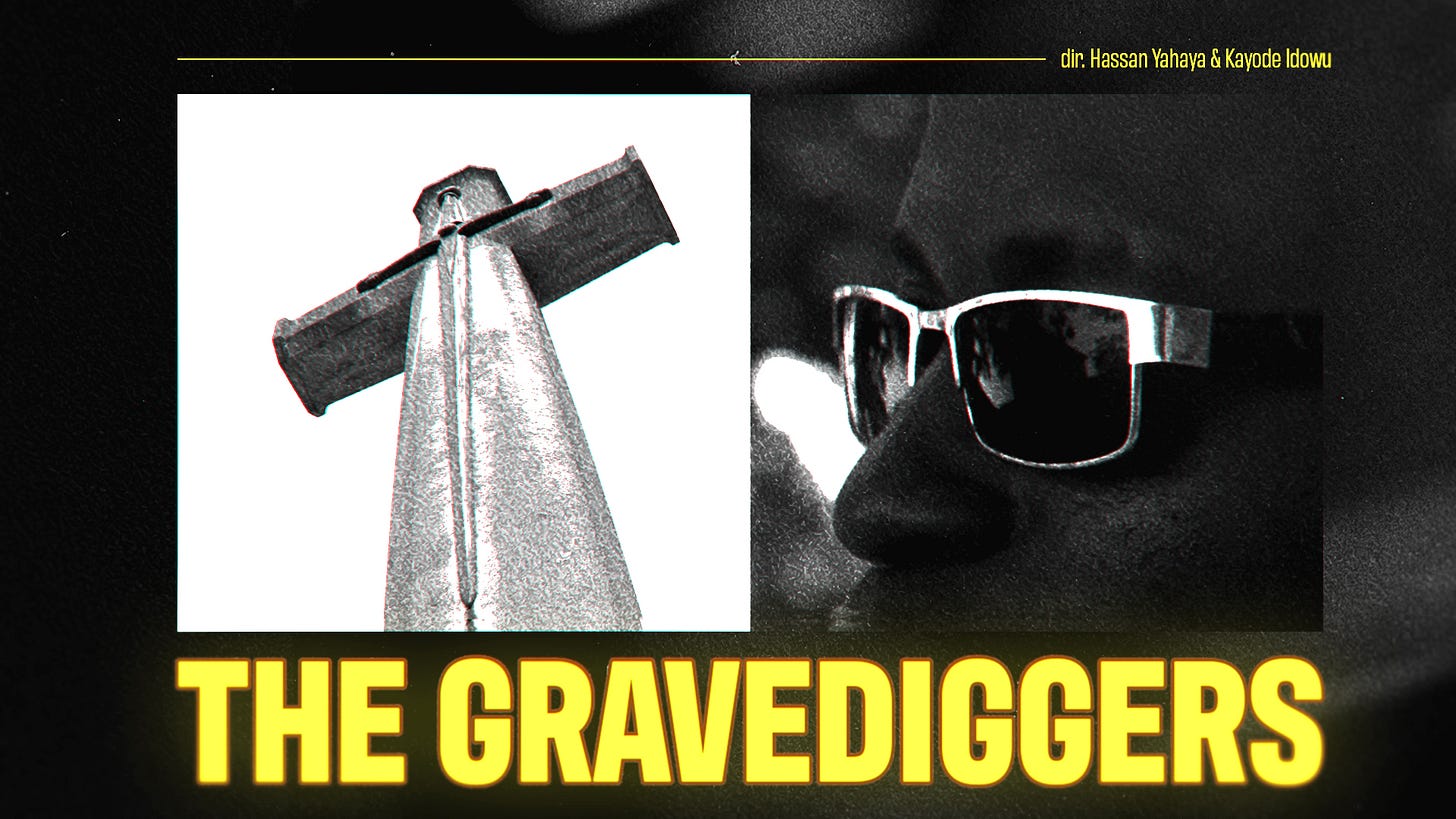Director’s Notes
Words by YAHAYA HASSAN TAIWO
The writer, Gay Talese, wanted to specialise in writing about nobodies — people who weren’t considered newsworthy. People who were largely ignored because they hadn’t committed a crime, been involved in a scandal, or suffered a violent death.
Similarly, N.R. Kleinfeld — formerly of the New York Times — said the people he wrote about were labelled ordinary because they weren’t famous or powerful. But he found that tag diminishing. His subjects were extraordinary to him because an authentic richness filled their souls, alongside a “keen sensory awareness of the way the world works.”
When Kayode and I set out to make The Gravediggers, our primary goal was to tell the story of everyday people living as authentically as possible. Our initial aim was to tell the story of a 90-year-old tailor shop that had passed through three generations of descendants. But when that story fell through, a serendipitous conversation at Papies Maetro [behind Atan Cemetery] after one of our failed visits to the tailor shop spurred the idea for this documentary.
As someone who has always been fascinated with the rituals of death, I asked Kayode, “Why don’t we tell the story of gravediggers?” A few fevered pitches later, Kayode bought the idea, became gingered, and our journey started.
At its core, The Gravediggers is an attempt to capture a sliver of the day-to-day experience of the people who make a living from burying the dead. Our intention with this doc is not to be didactic, moralising, or to wring out global implications. Instead, we aim to [hopefully] magnify and probably amplify the realities of people who fly under society’s radar of what’s “important.”
Nothing hammers this point like this one scene from the documentary. We had spent 20 minutes trying to get [another] Kayode, a bricklayer at the cemetery, to open up to us, but we needed more progress. He had given mostly monosyllabic responses to all our questions while shielding his core behind the cool, dark shades he had on. At one point, I asked him a simple question.
“What don't you like about your job?”
Kayode seemed taken aback, almost as if he wasn’t used to his opinion being considered as important. There was a sigh and a pause in the mix. But after the pause, as if a spell had been broken, Kayode took off his glasses and started talking like a person for the first time since that afternoon. There was no facade, no high walls, just a few ordinary people connecting over the shared experience of living — which was precisely what we set out to do.






The director's note somehow made me appreciate the documentary even more.
You've shone light on some of the most underrepresented but invaluable contributors to our society, and you've done so in a graceful manner. I really enjoyed watching this so much that I wore a mild frown when it ended. Well done. You've done well. Well done again, Yahaya, Kayode, and the rest of team Vistanium.